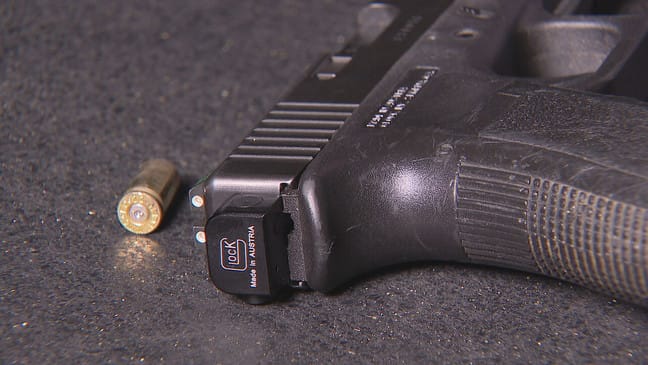Bipartisan Alabama Coalition Pushes to Ban Machine Gun Conversion Devices
By taking a bipartisan approach, Alabama lawmakers aim to curb the proliferation of these dangerous firearm modifications and address rising concerns about gun violence across the state.

In a notable display of bipartisan cooperation, Alabama lawmakers, city officials, and law enforcement agencies are advocating for a state-level ban on devices that convert semi-automatic firearms into fully automatic weapons. Known as "Glock switches" or "auto sears," these conversion devices are currently illegal under federal law but are not specifically addressed in Alabama's state statutes. The proposed legislation aims to empower state prosecutors to charge individuals found in possession of these devices.
This initiative is largely driven by a surge in gun-related violence, particularly in Birmingham, where multiple homicides have been linked to firearms equipped with conversion devices. Law enforcement officials warn that these attachments significantly increase a weapon's firing rate, thereby elevating the potential for mass casualties.
The legislative package not only targets these conversion devices but also proposes stricter penalties for illegal firearm possession and seeks to enhance legal protections for police officers. While the ban on conversion devices has garnered widespread support, some components of the package have raised concerns. Democratic representatives back the prohibition but are cautious about measures they believe might excessively shield law enforcement from accountability.
Jefferson County District Attorney Danny Carr emphasized the importance of the ban, stating, "Machine gun conversion devices have no place in a civilized society."
However, not all groups are in favor of the proposed legislation. Bama Carry, a prominent gun rights advocacy organization in Alabama, has expressed opposition to the ban. On their Facebook page, they argue that the legislation infringes upon Second Amendment rights and that existing federal laws already address the issue. They contend that additional state-level restrictions are unnecessary and could lead to further erosion of gun rights.
This collaborative effort underscores a shared commitment across party lines to address public safety concerns and curb the proliferation of dangerous firearm modifications. Including opposing viewpoints, such as that of Bama Carry, highlights the ongoing debate over balancing public safety with constitutional rights.





